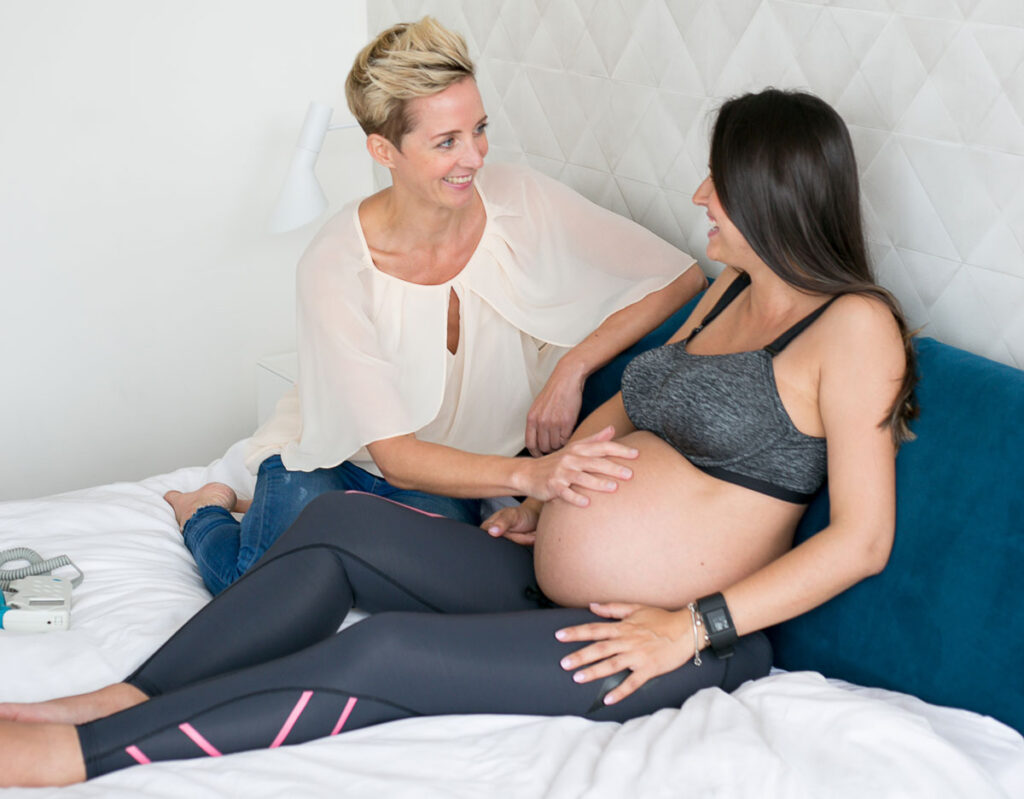
Urban Hatch founder Sofie Jacobs explains how a mother-to-be can optimize her health and that of the baby’s with a few simple changes to her lifestyle. At such a significant time, it is essential to understand that looking after yourself is looking after your baby. Focusing on diet and supplements, exercise, sleep patterns and mental and emotional balance will all help towards a healthy, happy and harmonious pregnancy.
How far out should a new mother-to-be start preparing for her health?
In an ideal world from the day she is conscious enough to make decisions to increase her overall health. Of course most of us don’t live in an ideal world, so she wants to start thinking about it when trying to conceive. And if that hasn’t happened, then when she finds out that she is pregnant.
What are the main elements she will need to focus on?
Preparing for a healthy pregnancy, and maintaining health throughout, involves a well balanced diet with several natural vitamins and minerals that should feature:
Folate – found in lentils, peas, nuts, avocado, dark green veggies and citrus – to reduce the risk of birth defects such as Spina Bifida. Also add a folate supplement of 400mcg a day
Magnesium – found in foods such as green leafy veg, pumpkin seeds and whole grains – to help with nausea
Iron – to help prevent anaemia
Fiber – to reduce constipation
Essential fatty acids – to reduce inflammation
Calcium – to top up the calcium her fetus will be taking from her
A high quality prenatal supplement – that includes iron, vitamins C and D, calcium, essential fatty acids, should also be taken throughout the pregnancy until well into the postnatal period
What should she expect during the first trimester?
The first trimester is challenging for both body and mind. Physically there are lots of changes happening – the embryo will implant and develop from essentially a ball of cells into a (tiny) fetus by week 11. This development will take a huge amount of Mama’s energy and she will feel tired. On top of this, to support the developing pregnancy, her body will pump out a huge amount of hormones, which can make her feel sick.
To cope with these physical challenges she will need to listen to her body and support it through rest, balanced nutrition (including supplements) and gentle exercise. If this is not enough she could explore supporting therapies such as acupuncture.
Emotionally the first trimester is hard because there is literally a mixed bag of emotions to cope with, no matter whether the pregnancy is planned or unplanned. To deal with feelings of anxiety, excitement and fear it will help to focus on slow breathing techniques. If she wants to top up her ‘emotional self care’ with supporting therapies I would suggest homeopathy, acupuncture or craniosacral therapy during this first stage.
How do her health requirements change over the next three trimesters?
Once past the first three months, for most women (though not all) fatigue and nausea will make room for a period of bloom. Pregnancy hormones stabilise, fatigue gets replaced by energy boosts and nausea disappears. At around 18 weeks the protein hormone Relaxin kicks in and can cause the maternal ligaments to soften, which in turn can cause Pelvic Girdle Pain. At this stage it is important that the pregnant Mama is mindful of healthy movement patterns to reduce discomfort. At this stage constipation can become a problem so a balanced diet with increased fiber intake and exercise can help.
The third trimester for most is more challenging again as the growing fetus demands more energy. Posture changes, fluid retention, softened ligaments, heartburn, constipation and lack of sleep are all common ‘side effects’ of the third trimester. A well balanced diet and a healthy balance between rest and exercise will help her to cope.
How much can a mother to be do naturally to ensure her prenatal health?
By learning to listening to her body and responding to its needs as much as possible a lot can be done. Adequate rest, balanced nutrition and exercise help. It’s all about enhancing the body’s natural ability to cope with pregnancy. For some this may be more challenging then others, in which case I recommend supporting and complementary therapies such as acupuncture, osteopathy and homeopathy.
She should also bear in mind that quality sleep becomes harder as pregnancy progresses. Napping during the day or at weekends if she is still at work, and regular early nights, are good ways to top up. Hormonal swings can bring about mood swings and a well balanced diet, exercise and supporting therapies can help, as well as being mindful of the fact that pregnancy can influence the mood and being ok with it.
What are the worries that a mother-to-be should be aware of?
For a planned pregnancy, the first trimester may include anxiety that the pregnancy could end up in a miscarriage. The mother-to-be will be mindful about what to eat and what to avoid too. During the
second trimester she will be debating private vs. public hospitals, which doctor to choose and the evolving relationship with their partner. And for the
third trimester there may be worries about the upcoming labour, birth and life changes.
For an unplanned pregnancy add anxiety about whether its ‘the right time’ to have a baby and the financial impact it will have too.
And for pregnancy after fertility treatment or previous miscarriage there will be disbelief regarding the reality of the pregnancy.
How late on in pregnancy, all being well, can a mother-to-be continue to exercise?
All being well, she can exercise literally until the moment she goes into labour, although most Mamas-to-be will struggle with fatigue in the last weeks of the pregnancy, especially if they are still at work. She should try to listen to her body as much as possible and adjust her exercise regime accordingly and replace any hardcore (yang) training with gentler (yin) exercise such as light swimming, walking, yoga and Pilates.
Pilates is awesome to help the body cope with the ongoing physical changes pregnancy brings. It’s a form of exercise that is highly adaptable and can be both a yang and yin form of exercise. It will increase body awareness, strengthen what is weak and lengthen what is tight.
About Sofie And Urban Hatch
Sofie Jacobs graduated in Midwifery in Belgium in 1998, before moving to London and then in 2012 her current home, Hong Kong. Between working in the NHS and private healthcare, her work has included hospital labour wards, high-risk units, antenatal clinics and birthing centres, as well as home births, breastfeeding and postnatal home visits, leading to a uniquely intuitive capacity for care.
A practical thinker and emotionally perceptive ‘people person’, Sofie is the ideal midwife. She has had the privilege of working with thousands of mothers, fathers and families for over 20 years, providing anxious, question-filled mothers with individual attention to support and educate them earning the reputation as “the non-judgmental living guidebook everyone should have access to”.
Sofie has completed the Exercise in Pregnancy course created by leading women’s wellness and fitness expert Jenny Burrell, later co-lecturing with Burrell. She is also a qualified Polestar Pilates Instructor and a strong believer in exercise pre and postnatal.
THE URBAN HATCH APPROACH
Urban Hatch is a midwifery service based on Head Midwife, Sofie Jacobs’ philosophy to support, prepare, and teach, adapting to the unique needs and lifestyle choices of any family.
By choosing Urban Hatch, you will be supported by Sofie, who is tirelessly passionate about helping you during pregnancy, birth, and until the first 12 months of life. In any situation, you will be provided with a range of options, weighing up the pros and cons according to personality type and individual lifestyle, to find the best way forward for baby, mother and partner.
Our experience and support ranges from first time parents to single mothers, IVF babies, same sex parents, higher risk pregnancies and adoption as well as lifestyle challenges including stressful work environments, partners who travel, anxiety and practically everything in between!
While you can use Pilates and yoga to prepare your body for giving birth, also check out Flex’s Bouncing Back After Baby Post Natal Package. After a private assessment to check your posture, strength and flexibility, our instructor will create a personalised package to help expedite your post-birth recovery.

